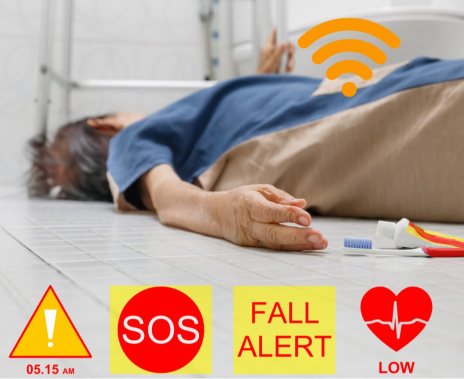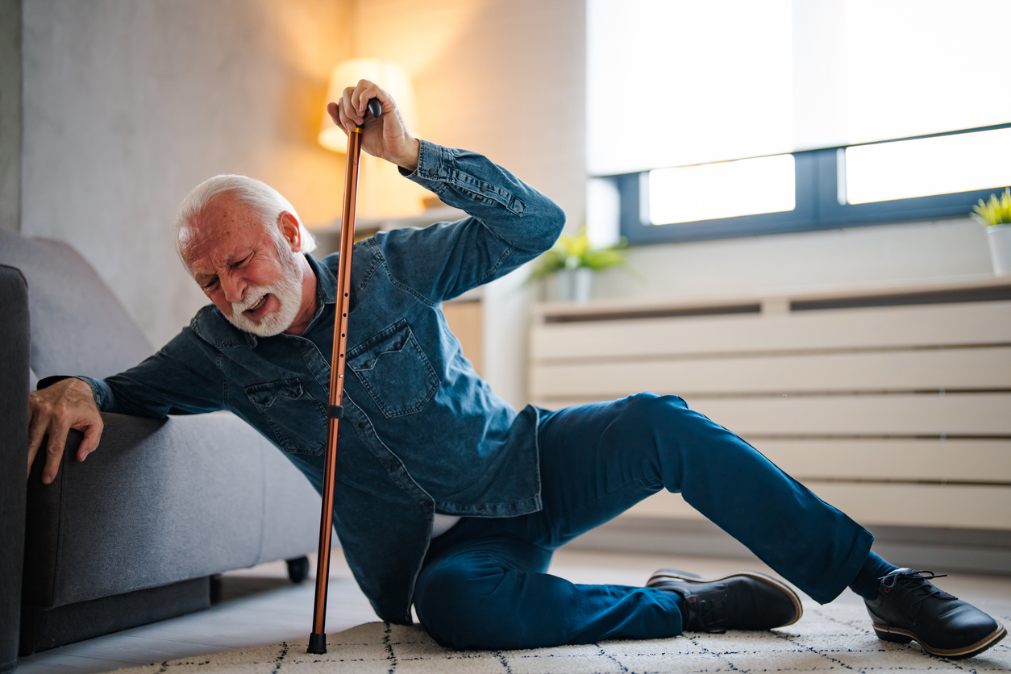A move towards “ageing in place ” is becoming more popular when dealing with the elderly. This means that we no longer work on the assumption that a care home is the best or only option available. All things considered a better alternative could be to offer supported living, allowing the individual to remain with their own home for as long as possible. Taking a broader view, it makes sense on so many different levels. When surveyed in 2023 , 95% of people expressed a preference to remain in their own homes as they grow older.
The 2023 survey also revealed that less than 4% of those who responded actually had a personal alarm. The use of a personal fall alarm is the main facilitator in allowing a person to remain at home and stay safe, especially for those living alone. The choice of personal alarms varies widely in terms of their capabilities and functions. The most important component of any alarm is the emergency button, which is pressed to send an alert that help is needed.
Whether you are currently caring for an elderly relative, or someone who is considering an alarm for personal use, we will look at how you can obtain one, and if there is help you can get from the government. In this article we are going to take a closer look at personal alarms, and investigate if you could be eligible to get one free of charge from the NHS or your local council, and the type of alarm would be best suited to your needs.
Can You Get a Personal Alarm Free on the NHS
In short the answer is no !!! The information provided within the NHS page on personal alarms and telecare does make reference to making contact with your local council …. Which then leads us to ask

Can you get a Personal Alarm for the Elderly Free from your Local Council ?
The approach taken to the provision of personal alarms varies between individual councils, so there is no one size fits all answer to this particular question. Generally speaking however councils, just like the NHS do not provide free personal alarms. On the rare occasions that they do, the alarms provided tend to be very basic, and might not have some of the key functions that you need.
Even though they do not offer free personal alarms a lot of councils have contracts with private companies that are able to supply them. Occasionally a council might offer an alarm at a reduced price for those on lower incomes, however they can come with a monthly charge attached.
In order to obtain an alarm via your local council, you would need to have a home assessment visit. This entails a representative from your council coming to your home to conduct a survey of potential hazards, and risks to personal safety within the home. Based on the results of this assessment they will make a decision on whether or not you are entitled to a personal alarm. If you want more information on whether your council does indeed provide a personal alarm service then visit the government page finding your local councils community alarm services. It is worth bearing in mind however that wording contained within the NHS pages , is as follows
” some councils provide monitoring services. They are usually basic systems “
This is an important point to keep in mind. Many personal alarms offered by council services are quite basic and may not include certain features you might prefer. Since different councils offer various types of personal alarm services, it’s a good idea to explore what’s available to you. In some cases, councils provide additional alarm features for individuals they believe have greater needs.
In this section, we’ll outline key considerations and potential limitations you might encounter with simpler devices provided by your council.
Factors to Take Into Consideration when Thinking About Installing a Council-Provided Personal Alarm System.
Home based versus mobile alarms
When considering your options, think about how and where you want your alarm to work, are you looking for an alarm that just works in the home, or do you want one that is portable?
A personal alarm that is connected to your landline, and a power outlet, are often referenced within a council’s service page. This type of alarm only works within the home, and can prove useful for a person who is completely housebound. However many people will want the versatility of a personal alarm that works both inside and outside the home , for example when away on holiday, or just out and about .
This leads us into an alarm that operates with a GPS system which offers protection away from the home. Aside from offering an emergency call button a GPS mobile alarm allows the wearer to be traced, and can prove especially beneficial when dealing with persons who may be suffering with dementia. It gives family and carers the peace of mind of knowing the whereabouts of the vulnerable individual at all times .
TALKING PENDANT AND WRIST ALARMS
Many councils will only offer a simple alarm worn on the wrist or around the neck. They are basic in their functionality, and not very attractive to look at. What might be more aesthetically appealing is a wrist worn personal alarm, that takes on the appearance of a smart watch. They provide a more discreet proposition for many people .
If your preferred choice is a pendant alarm then it is worthwhile checking if the council provides a talking pendant. This type of alarm allows you to actually speak directly to someone rather than just having an emergency button to press. Being able to talk via the pendant offers an extra level of security for the wearer.
24/7 MONITORED ALARMS V FRIENDS AND FAMILY ALARMS
As the name suggests, the key difference when using a 24/7 monitored alarm, is that the press of a button on such an alarm will connect immediately to a response centre at any time of day or night. This means there will be someone available to deal with the call at all times . A friends and family alarm connects you directly to your nominated person whose contact number has been pre-loaded into the alarm.
One thing to note is that neither of these methods is superior to the other. It comes down to personal preference and individual circumstances. If a family member is close by and able to attend then a friends and family alarm could be the best option. However, if for example your family members have no access to phones during certain times meaning they are difficult to contact, then a monitored alarm could be the more sensible choice.
If you are considering using your council for your personal alarm needs, then check which of these systems is available, are you connected to a call centre or a nominated individual when the alarm is activated.

FALL DETECTION
If you are provided with a basic alarm it may not have fall detection as an added failsafe. As suggested, a fall detection alarm has the capacity to sense when and if a fall has occurred, and will automatically call for help in this situation. This fall detection system adds an extra layer of security, by ensuring the alarm is raised even if an individual is incapacitated by the fall, and will prevent a long lie situation. A long lie is deemed to be a period of one hour or more , and can be seriously detrimental to an individual’s health. For example if a fall occurred outside in cold conditions, and the person concerned can’t reach safety or warmth .
With fall detection you can take the worry out of this type of scenario. This is because fall detection will automatically trigger as the fall takes place, irrespective of whether a call is made manually, ensuring sure help is on the way
YOUR REASONS FOR GETTING A PERSONAL ALARM
Before settling for a personal alarm, it is prudent to consider if it is the most appropriate solution to your personal needs. Additionally you need to consider the type of alarm you require, in some cases the basic personal alarm will be sufficient , whilst in others a more sophisticated model might be a better option .
Some of the reasons a personal alarm would be the solution are
- To help prevent a long lie fall occurring
- To be able to call for help in other cases of emergency
- To provide peace of mind even if health is not of concern
- To help protect people with dementia
- As a back up if a carers centre is not close by
So think carefully about why you might want a personal alarm, and the potential situations in which it will be required .For a fairly active individual a mobile alarm might make more sense, whereas if an individual is prone to falls ,then a fall detection alarm may be better etc etc. In the end, selecting a personal alarm for seniors is a highly individual and personal decision. There are many factors to consider when determining which alarm is right for you.
If you are still unsure what kind of personal alarm would best meet your particular needs the team here at Home help 247 would be only too happy to provide advice and guidance. For information on all our wide range of services contact the team here on 0330 332 0713 or complete the simple online contact form and we will get back to you asap.
